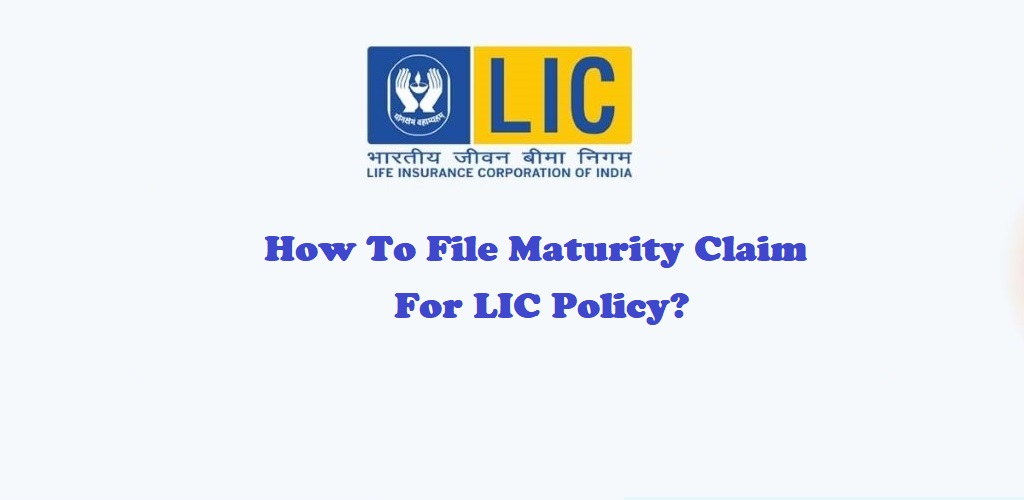India’s Life Insurance Corporation (LIC) is the country’s biggest provider of life insurance that has earned a reputation for offering a wide variety of policies, including term plans, ULIPs, endowment plans, money-back plans, retirement plans, etc. While term insurance policies only provide policyholders with death benefits, other insurance policies offer both death benefits and maturity benefits. A beneficiary in both situations must submit a claim to the company to receive the insurance funds.
What Is Maturity Claim?
The payment made to the policyholder upon the maturity of their insurance policy is referred to as a maturity claim paid in LIC (Life Insurance Corporation). When the policyholder has complied with all of the terms and conditions, such as paying the premiums on time, and the policy has reached its maturity date, this payment is made. The sum assured, or the amount of money the policyholder is guaranteed to receive upon the policy’s maturity is typically the maturity claim paid.
Eligibility Criteria for Filing a Maturity Claim
In a life insurance policy with maturity benefits, the insured will be entitled to claim maturity benefits
- If he or she outlives the term of the policy.
- When the policy is in force
- All premiums have been paid duly.
Importance of Filing Maturity Claims for LIC Policies
If you happen to outlive the policy’s term, the maturity claim protects your family as well as gives you a chance to enjoy a sizeable sum yourself at the end of the term.
Example:
Software engineer Mr. Pramod Mathur of Delhi chose an endowment plan with a 15-year policy term. Sumit survived after the policy’s term was over and was qualified to submit a maturity claim. Following that, LIC will examine each document that Sumit submitted. When the insurer granted his maturity claim, it was approved.
It should be noted that to receive the benefit, an insured must have paid all required premiums on time and the policy’s term must have expired. Additionally, not all life insurance plan types offer the benefit upon maturity.
In general, the maturity claim amount is paid in one lump sum of;
- The total amount that the insured has paid in “premiums” to their insurance company over the course of the maturity period.
- The extra benefits that the insurance company chooses to provide the insured, which are typically monetary.
Types of LIC Policies Eligible for Maturity Claims
Listed below are the LIC policies that allow you to claim maturity benefits.
- Plans for Endowment
- Unit Linked Insurance Plans (ULIPs)
- Term Insurance with Return of Premium (TROP Plans)
Process To File a Maturity Claim for Your LIC Policy?
The nominee or legal heir is required to provide extensive documentation regarding his or her relationship to the insured to file a death claim. Along with this, additional regular documents related to claim processing must be filed. There is very little paperwork required in maturity claims. Since the insured typically files these requests, they can be completed quickly and painlessly. Let’s look at the steps necessary to submit a maturity claim to the LIC.
- Policy Discharge Form
You can download a policy discharge form from the insurance company’s website. It is simple to download or acquire from the insurance provider’s office. The form should be completed and signed by the policyholder. Along with two witnesses’ signatures, the form also needs a revenue stamp.
For the claim to be processed quickly, the properly completed policy discharge form and supporting documentation must be delivered to the insurer at least 7 working days before the maturity date.
- Claim Processing
LIC first verifies all the documents after receiving the policy discharge form and all the supporting documentation. The insurance provider processes the claim and pays the policyholder after verification is finished. After the policy’s maturity date, the payment is wired straight to the policyholder’s bank account. The option of receiving a post-dated check at his address is also available to policyholders. When the check reaches maturity, it can be deposited in a bank account to be cashed.
In the case of money-back policies, the policyholder will receive periodic payments of a specific amount of money. There is no need to file the form for the policy discharge in this case if the settlement sum is less than Rs. 60,000. Once the maturity period has passed, the proceeds will be automatically deposited into the policyholder’s account. However, the discharge form must be submitted with the necessary paperwork if the settlement sum exceeds Rs. 60,000.
Documents Required to File a Maturity Claim
The insured must provide additional documentation in addition to the policy discharge form when filing a maturity claim. The list of documents is given as follows:
- Original policy documents
- Photocopy of identity proof
- Photocopy of address proof
- Photocopy of age proof (if not previously submitted)
- NEFT mandate with the bank details
- A cancelled cheque leaf or a copy of the policyholder’s bank passbook
- Details regarding any assignment or reassignment
All paperwork must be delivered to the company at least 5 to 7 days prior to the policy’s maturity date to ensure a smooth transfer. The business will then start the settlement process after receiving all of the required documents.
Things to Note While making a Maturity Claim for your LIC policy
While making a LIC maturity claim, it is necessary to take the following things into consideration:
- The settlement amount will be paid to the designated beneficiary or legal heir if the policyholder passes away after the maturity period but prior to receiving the claim amount.
- Only policies with maturity bonuses and benefits are subject to this maturity claim procedure. Term insurance policies are not affected by this.
- It is best to contact LIC customer service or the branch directly if the policyholder does not receive the policy discharge form by the due date.
- If the policy was purchased in someone else’s name, the assignee has the authority to grant the discharge.
- The company’s customer service division can be contacted for advice if there are any questions about the settlement procedure.







